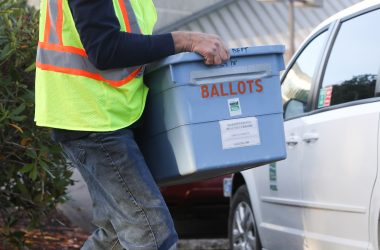Another friend died more recently. Or maybe she was more of an acquaintance – what constitutes friendship? I don’t think I earned that status, even though we’d exchange hellos and conversation.
I knew Melisa from working at warming shelters and from sometimes cooking and serving dinners at ARCHES, and from volunteering at some homeless events, and from having many reasons to visit ARCHES often.
When I first met her, she was struggling with addiction. Over time, she shared proudly that she was clean. I have only a sliver of understanding how very hard it might be to be clean when there is so much to try to escape from. You are living on the streets and camps, with so much weather, pain, risk, harm, and trauma as you navigate each day in survival mode, as people often treat you as if you are invisible or vermin. Not seeing that you are really a warrior who is still standing, against all odds.
Over time, she shared that even as a minor, she’d been homeless often, as a recurring runaway since she was 10. She had epilepsy and some other health issues. She’s one of the people who sometimes slept under downtown awnings, because there’s nowhere for her to be, and as human beings, we all need some shelter from the elements.
She’s someone who would smile as she said hello, even though her life’s not giving her much to smile about.
I sometimes asked her to come try SafeSleep. She said she’d think about it but can’t do that yet. People often interpret that sort of response as someone being “service resistant,” often characterizing the person as someone who’s anti-authoritarian, unwilling to follow rules, a rebel who prioritizes autonomy above shelter that could save their lives. They’re making their own bed by their poor choices.
I don’t see it that way. This work teaches things we might never want to know, and yet we can’t do the work and people justice unless we’re willing to let people we serve teach us those things. When we’re willing to be colored and changed by what we see and learn, slivers of ephemeral understanding sometimes happen.
It’s rare that service resistance is happening. More likely, it’s so much more.
There might be paranoia and claustrophobia happening. There might be triggers from harm that happened at other shelters or other indoor space, where there was no way to run away.
Streets can be dangerous, but there are places to run. It might be that a night time shelter offers just that – safety for the night. Yet you’re still on your own during the day, and how do you function if you store your stuff at the shelter, or how do you protect property you might keep outside, when you are not there to keep it safe during the nights?
And how do you function in a shelter where people might be struggling in ways that trigger you, and that person might be in the bed next to you? Street sleeping isn’t safe, yet it does enable you more freedom to choose who you will be next to.
What if pacing or walking or sweeping sidewalks, or having a cigarette calms your nerves, but shelters have curfews, and your anxiety might kick in after curfew? There are so many, many valid reasons that make it hard for some people to choose shelter. How do you balance the safety that sleeping inside can offer, if your mind might not survive the night in any ways that let you sleep?
These things are on my mind, and they make sense to me intellectually. Emotional integration is harder. It’s easy to feel “how can you NOT choose shelter?” Those times remind me that I have not grokked their realities well enough yet.
Yet sometimes, I feel fleeting glimmers of emotional understanding. And I offer shelter anyway, while also trying to feel and understand the times and reasons that people need to say no. And we offer again and again, in case the balance shifts for someone at some point.
Melisa’s balance had not shifted yet, to ever say yes.
Melisa had been sick. The hospital provided quality care, and then discharged her to ARCHES parking lot where she was dying on cold asphalt in the freezing air. ARCHES’ staff found her and called for help, and for that, I am grateful – she had support because ARCHES offered humanity that life and the world denied her.
I think about Melisa’s death, and about my friend who died earlier, in a lovely and warm home, in a hospital bed to make him comfortable, with his girlfriend and his friends wrapping him in love, as he died with everyone around, across time and miles.
The disparity hurts.
STORY TIP OR IDEA? Send an email to Salem Reporter’s news team: [email protected].
JUST THE FACTS, FOR SALEM – We report on your community with care and depth, fairness and accuracy. Get local news that matters to you. Subscribe to Salem Reporter. Click I want to subscribe!

Lynelle Wilcox - Special to Salem Reporter
Lynelle Wilcox has served people experiencing homelessness in Salem for six years - initially volunteering at warming centers and homeless events. As people shared their stories through the years, she saw how much a smile and hello can create commonality, connection, and sometimes hope. And hope can change everything. She writes about some of the things she’s learned along the way, and shares some of the stories. She adores her kids, and loves vivid colors, cats, happy clothes, music, cooking, skies, dogs, and daisies.









